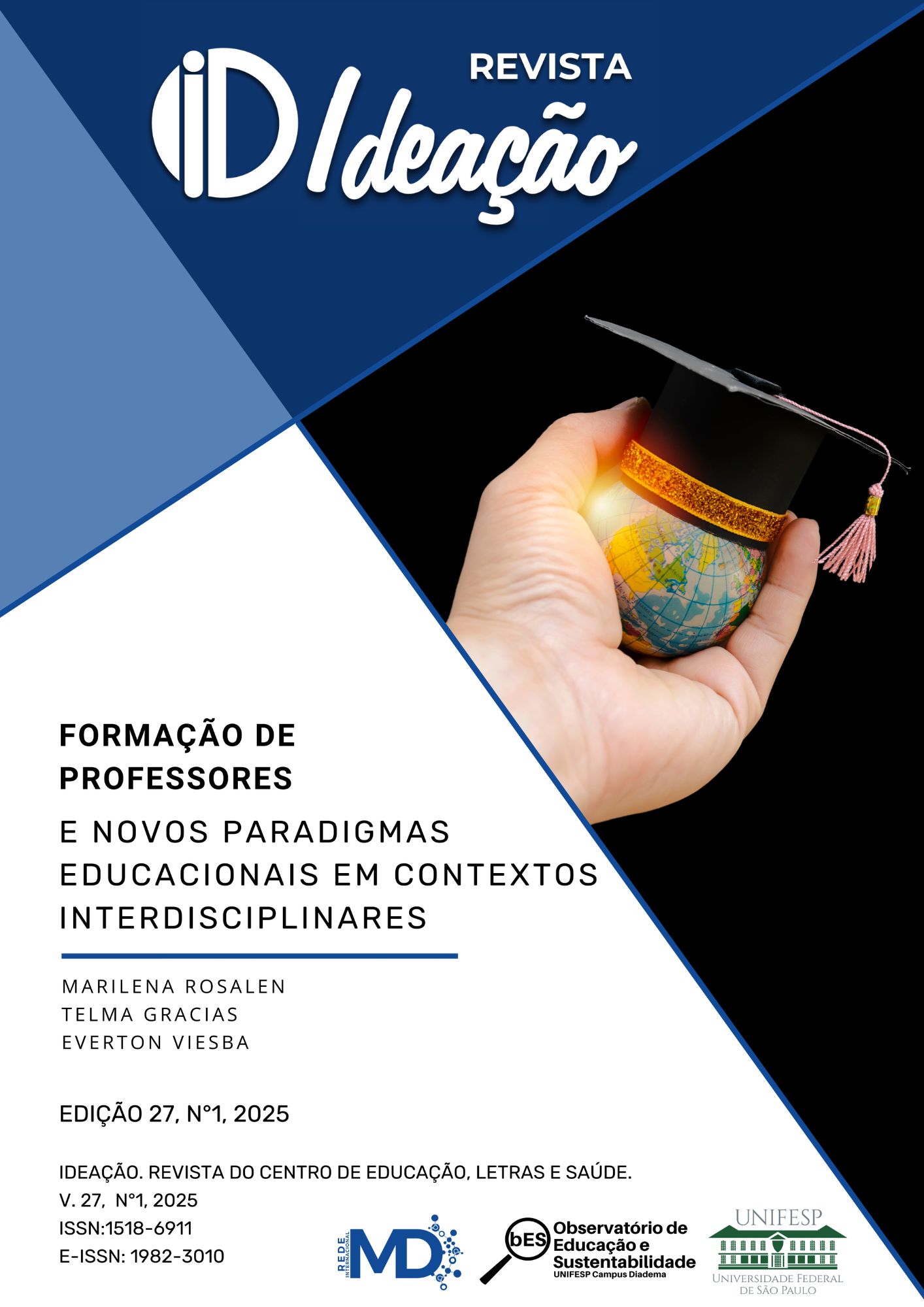PRÁTICA FORMATIVA NO ENSINO DE BIOLOGIA
DIÁLOGO DE SABERES DAS RESIDENTES NO PRP/UERR
DOI:
https://doi.org/10.48075/ri.v27i1.34805Palabras clave:
Residência, Metodologias, Ensino, DocênciaResumen
O presente artigo aborda as experiências vivenciadas por duas residentes do Programa de Residência Pedagógica (PRP) da Universidade Estadual de Roraima (UERR), realizadas no Colégio Estadual Militarizado Professora Maria dos Prazeres Mota (CEM VII), em Boa Vista/RR. A pesquisa analisou as práticas desenvolvidas pelas residentes durante o período de um ano e meio, envolvendo metodologias ativas e interativas, atividades práticas, acompanhamento científico, o uso de Tecnologias da Informação e Comunicação (TICs) e a aplicação de uma Sequência Didática no ensino de Biologia para turmas do ensino médio. As residentes, denominadas A e B, adotaram abordagens distintas, com foco em diferentes metodologias e contextos pedagógicos. Os resultados demonstram avanços significativos na compreensão dos estudantes sobre os conteúdos trabalhados, bem como no aprimoramento das competências docentes das residentes. As atividades realizadas contribuíram para o desenvolvimento de habilidades como autonomia, pensamento crítico e protagonismo dos estudantes. Além disso, o PRP mostrou-se um espaço de aprendizado reflexivo e de experimentação pedagógica, unindo teoria e prática. Por fim, a parceria entre universidade e escola destacou-se como elemento essencial na prática formativa, criando professores mais preparados e sensíveis às demandas da educação contemporânea.
Descargas
Publicado
Cómo citar
Número
Sección
Licencia
Derechos de autor 2025 Direitos partilhados conforme licença CC BY-NC-SA 4.0

Esta obra está bajo una licencia internacional Creative Commons Atribución-NoComercial-CompartirIgual 4.0.
Política a respecto de publicaciones periódicas de libre acceso
Los autores que publican en esta revista están de acuerdo con los siguientes términos:
1. Los autores conservan los derechos de autor y conceden a la revista el derecho de primera publicación, y la obra se licencia simultáneamente bajo la Licencia de Atribución de Creative Commons, lo que permite que la obra se comparta con el reconocimiento de la autoría y la publicación inicial en esta revista.
2. Los autores están autorizados a asumir contratos adicionales por separado, para la distribución no exclusiva de la versión de la obra publicada en esta revista (por ejemplo, para publicarla en un depósito institucional o como capítulo de un libro), con reconocimiento de la autoría y la publicación inicial en esta revista.
3. Se permite y alienta a los autores a que publiquen y distribuyan su trabajo en línea (por ejemplo, en repositorios institucionales o en su página personal) en cualquier momento antes o durante el proceso editorial, ya que ello puede generar cambios productivos, así como aumentar el impacto y la citación del trabajo publicado (véase El efecto del acceso abierto).
Licencia Creative Commons
Esta obra está licenciada bajo una Licencia Internacional Creative Commons Reconocimiento-No comercial-CompartirIgual 4.0, que permite compartir, copiar, distribuir, exhibir, reproducir, en su totalidad o en partes, siempre que no tenga un propósito comercial y se citen los autores y la fuente.


